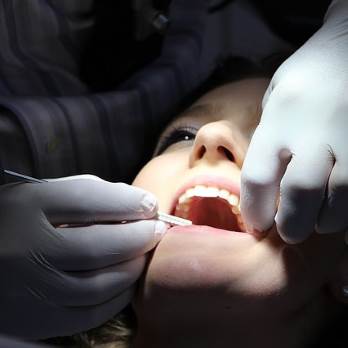A guide to dental implants in the UK: prices, benefits and affordable options
In the UK, dental implants are a highly effective means of restoring teeth, but they are relatively expensive, usually between £2,000 and £6,000 per tooth. However, the UK government provides some medical benefits for older people, including dental services, but dental implants are not usually included in the free services.

What are dental implants and how do they work?
Dental implants are artificial tooth roots surgically placed into the jawbone to support replacement teeth. They consist of three main components: the implant (a titanium post), the abutment (a connector), and the crown (the visible part of the tooth). The process typically involves several stages, including initial consultation, implant placement, healing period, and final restoration.
How much do dental implants typically cost in the UK?
The cost of dental implants in the UK can vary significantly depending on various factors. On average, a single tooth implant can range from £2,000 to £2,500. However, more complex cases involving multiple teeth or additional procedures like bone grafting can increase the overall cost substantially.
What factors influence the price of dental implants?
Several elements contribute to the final cost of dental implants:
- Number of implants required
- Type of implant system used
- Need for additional procedures (e.g., bone grafting, sinus lifts)
- Dentist’s experience and location
- Laboratory fees for custom-made crowns
- Follow-up appointments and maintenance
It’s important to note that while the initial cost may seem high, dental implants often prove to be a cost-effective long-term solution compared to alternatives like bridges or dentures.
What are the specific benefits of dental implants for elderly patients?
Dental implants offer numerous advantages for seniors:
- Improved chewing ability and nutrition
- Enhanced speech clarity
- Preservation of facial structure and prevention of bone loss
- Increased comfort compared to removable dentures
- Boost in self-confidence and quality of life
- Long-lasting solution with proper care
For many elderly patients, these benefits can significantly impact overall health and well-being, making the investment in dental implants worthwhile.
Are there ways to reduce the cost of dental implants in the UK?
While dental implants can be expensive, there are several strategies to potentially lower costs:
- NHS coverage: Some cases may qualify for partial NHS funding, particularly if there’s a medical need.
- Dental schools: Training clinics at dental schools often offer reduced-cost treatments.
- Dental plans: Some private dental plans may cover a portion of implant costs.
- Financing options: Many dental practices offer payment plans to spread the cost over time.
- Dental tourism: Some patients consider traveling abroad for treatment, though this comes with risks.
It’s crucial to weigh the potential savings against the quality of care and long-term outcomes when exploring cost-reduction options.
| Provider | Service | Cost Estimation |
|---|---|---|
| Bupa Dental Care | Single tooth implant | £2,235 - £2,950 |
| Mydentist | Single tooth implant | £2,000 - £2,500 |
| Portman Dental Care | Single tooth implant | £2,500 - £3,500 |
| Oasis Dental Care | Single tooth implant | £2,100 - £2,900 |
| Genix Healthcare | Single tooth implant | £1,995 - £2,495 |
How can seniors find affordable dental implant providers in their area?
To find cost-effective dental implant providers locally:
- Consult with your regular dentist for recommendations
- Research local dental practices specializing in implants
- Check reviews and ratings from previous patients
- Request consultations and quotes from multiple providers
- Inquire about financing options and payment plans
- Consider nearby dental schools or teaching hospitals
Remember to prioritize the provider’s experience and credentials alongside cost considerations to ensure the best possible outcome for your dental health.
Dental implants can be a significant investment for seniors in the UK, but understanding the costs, benefits, and available options can help make informed decisions. While the initial expense may be substantial, the long-term advantages often outweigh the costs for many elderly patients. By exploring various providers, financing options, and potential cost-saving strategies, seniors can work towards achieving a healthy, functional smile without breaking the bank.
This article is for informational purposes only and should not be considered medical advice. Please consult a qualified healthcare professional for personalized guidance and treatment.
The shared information of this article is up-to-date as of the publishing date. For more up-to-date information, please conduct your own research.
Prices, rates, or cost estimates mentioned in this article are based on the latest available information but may change over time. Independent research is advised before making financial decisions.




